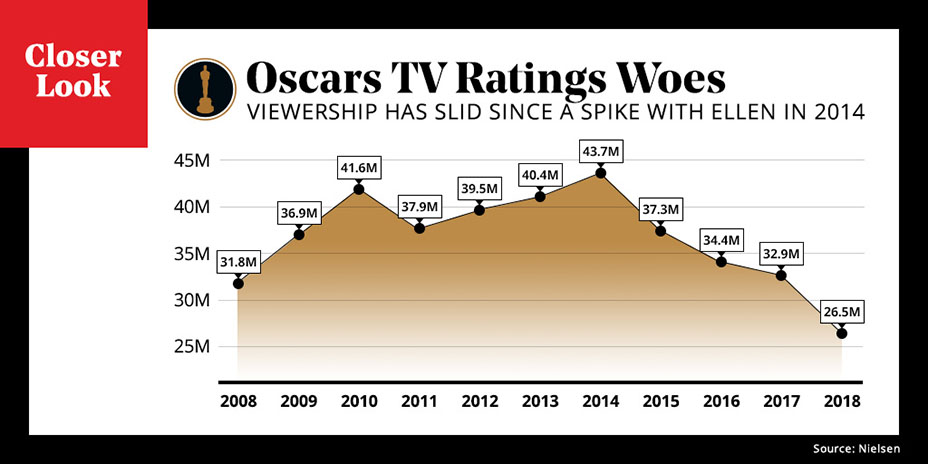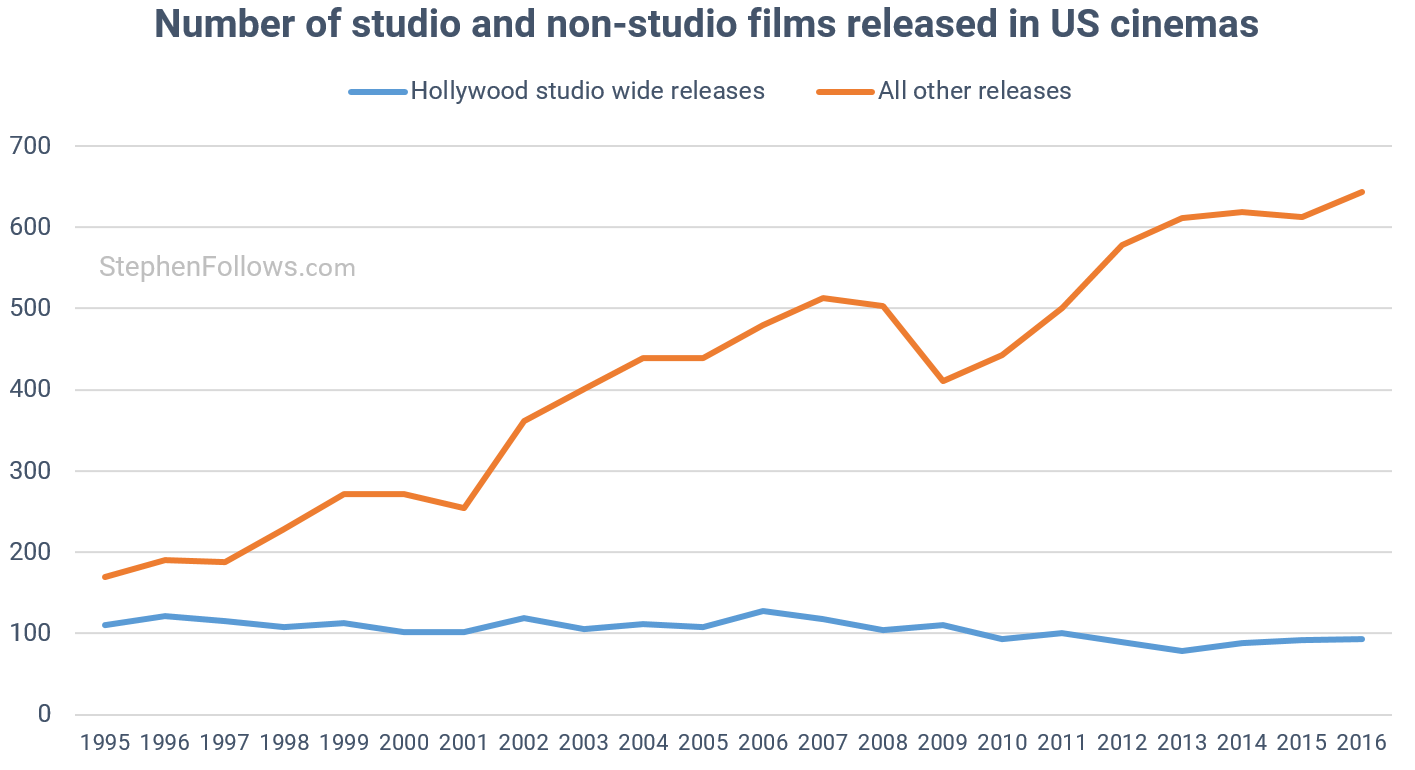Forget Lefty Politics: Here's Why the Oscars' Ratings Hit an All-Time Low
The Academy Awards broadcast pulled fewer eyeballs for the same reason movie-ticket sales are down: We have more options. Thank God.
Don't you just hate it when the leader of the Free World is right about something? Well, Donald Trump is accurate about the sad! ratings for Sunday's broadcast of the Academy Awards:
Lowest rated Oscars in HISTORY. Problem is, we don't have Stars anymore - except your President (just kidding, of course)!
— Donald J. Trump (@realDonaldTrump) March 6, 2018
Politifact, which chronicles the truthiness of Trump's proclamations, notes that Sunday's show pulled just 26.5 million viewers, which represented a nearly 20 percent decline on the 2017 show. What's more:
Was Trump right that 2018 marked a low point for the Oscars? Since the beginning of Nielsen TV audience ratings in 1974, yes….
This is not a one-year downward blip, either. Oscars viewership in 2018 fell by 39 percent from its level just four years earlier, in 2014, when Ellen DeGeneres hosted for ABC.

And get this, 2017 was also the worst year for ticket sales in Canada and the United States since 1992.
What's going on? A common complaint on the right is that Hollywood is alienating mainstream American audiences by being so doggedly and dogmatically left-wing. A standard formulation of this argument runs something like this 2015 Blaze article by William Avitt:
The summer blockbuster is not the place people go to be preached at, or lectured about how they are destroying the environment and starving the homeless for the purpose of their own greedy indulgences. And when half of the country's population is of the Conservative persuasion, moviemakers are severely alienating a large portion of the audience by doing so.
Well, maybe, maybe not. Out of last year's Oscar noms for Best Picture, the horror film Get Out made $255 million at the box office even as it was a highly charged statement about race relations. The World War II action film Dunkirk made over half-a-billion dollars worldwide and it too is a political movie, even if its actual ideology is not really clear. The current box-office smash, Black Panther, like last year's Wonder Woman, is brimming with politics, none of which can be easily interpreted as right-wing or conservative. I'll also point out that while Sunday's Oscars event featured explicit shout-outs to the #MeToo movement and calls for racial and gender equity in front of and behind the camera, the winner of the Best Actor award, Gary Oldman, is a self-described libertarian whose portrayal of conservative icon Winston Churchill was widely praised by critics across the ideological spectrum.
But if Hollywood's increasingly open hostility to audience members of "the Conservative persuasion" doesn't explain why viewership is tanking, either on Oscar night or at the theater, then what does? The answer, I think, is everywhere around us. We have so many more options on how to spend our leisure time than we did 20 or 30 years ago that the audience for older versions of entertainment are pretty much down across the board. Politifact again:
Ratings for the most recent Grammys fell by almost one-quarter in just one year, while the Screen Actors Guild Awards fell by 30 percent and the Golden Globes fell by 5 percent. This year's Super Bowl had the lowest audience since 2009….
"Every awards show on television has seen erosion, and many are notching record lows in viewership," [NPR movie critic Eric] Deggans said. "There are more things than ever competing for an audience's attention, and more alternatives for people who might not want to sit through something as conventional as an awards ceremony."

Between better and better cable TV packages, Netflix and Amazon streaming, YouTube, smart phones, and more and different types of sports, concerts, restaurants, you name it, it's really hard to maintain market share, much less grow it. "Cultural proliferation"—massive and ongoing increases our ability to make and consume creative expression under the circumstances we prefer—means that legacy institutions such as the Oscars, the Olympics, and the Super Bowl are almost certain to decline. That loss has nothing to do with political posturing—conservatives, progressives, liberals, and libertarians all have infinitely more outlets than we did a generation ago—and more to do with incredible consumer choice.
And so Donald Trump is right not just about the Oscars' ratings decline, but about his assertion that "we don't have Stars anymore." No actor or actress—or show, or movie, or annual event—can hope to command our collective attention the way one might have back in the bad old days of three networks and fewer than 300 theatrical movie releases a year. But that loss is the audience's great gain.


Show Comments (207)